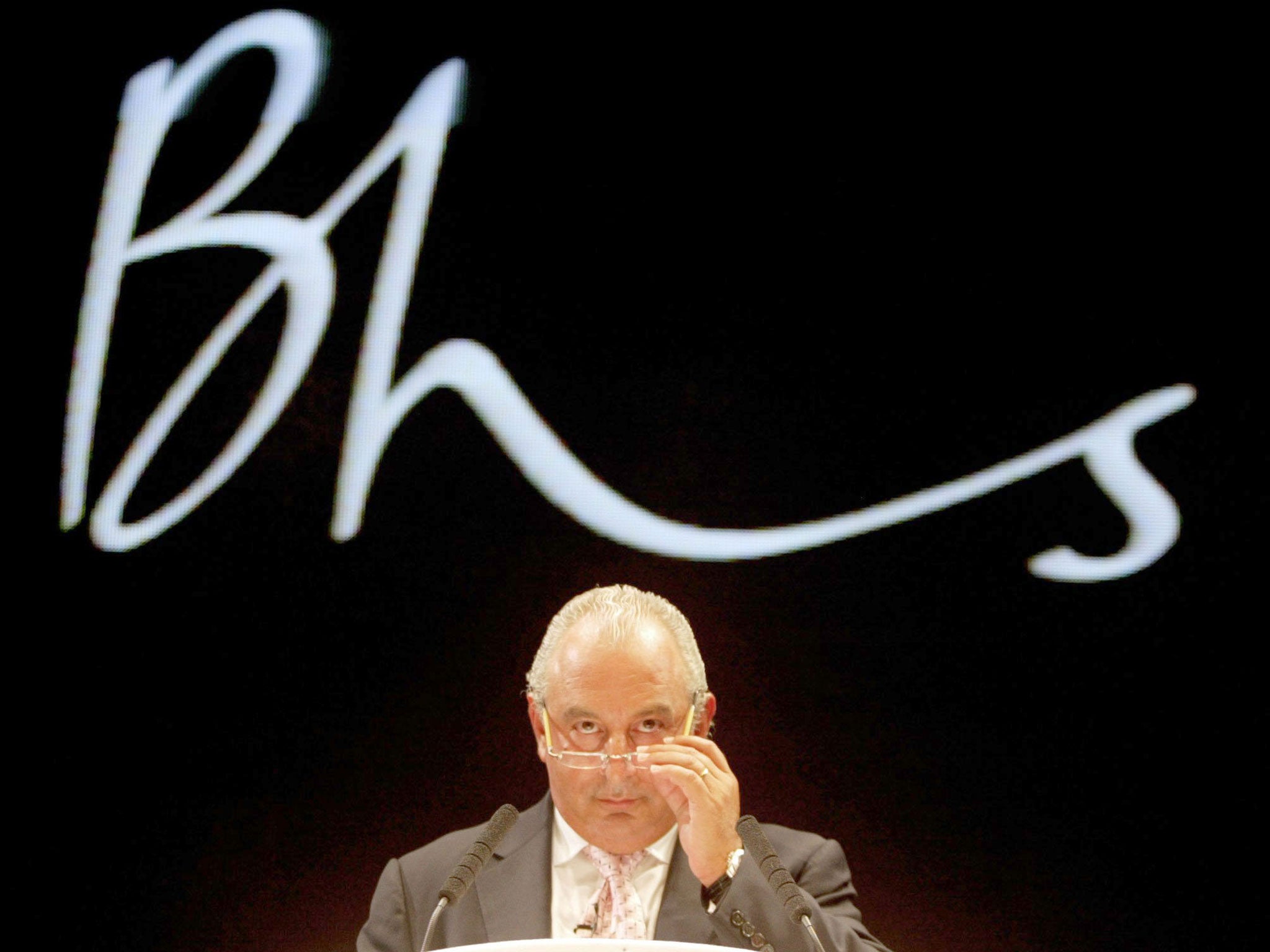Sir Philip Green – the man who turned the hard work of the British high street into glittering parties
The popular notion of removing his knighthood is perfectly obscene. Surely he deserves his place in the House of Lords as Baron Green of Monaco?


If the Guild of Obituarists will forgive the impertinence, I wish to suggest an opening paragraph for their appreciation of a titan of commerce whenever the sad day dawns.
“Philip Green will be fondly recalled for many fine qualities – his personal charm, his generosity toward his wife Tina, his knack for throwing elegantly understated parties for himself and his family, to name a few. But the achievement for which he best deserves to be remembered is transforming a long established high street institution into a pound store.”
When Sir Philip sold British Home Stores (BHS) last year, the price was a princely £1.
There are various explanations for this. One is the reckless generosity praised above in relation to Lady Green, who famously resides in tax haven Monaco, to whom a £1.2bn dividend was paid in 2005 via his Arcadia firm. Noting that the buyer of BHS, one Dominic Chappell, had twice gone bankrupt before the deal, it could simply be that big hearted Phil wanted to do him a favour.
The other explanation is that so much money had haemorrhaged from BHS during his 15 years of ownership, coupled with such a colossal shortfall in the pension fund, that it was worthless and beyond the rescue of even a genius such as Chappell. We know he’s a genius, by the way, because even in his company’s brief tenure as owner – despite that crippling pension deficit – he contrived to transfer some £25m from BHS to Retail Acquisitions.
Exactly how much Green received from BHS is not clear. Estimates range from a modest £400m in dividends to a barely less modest £1bn, in dividends and various property deals.
None of this was in any way dodgy, as reports clarify by using a charming catchphrase. It was great to see it once again, because it hadn’t had a run out like this for a very long time. Not for several weeks, in fact, since the Panama Papers. That catchphrase, if you haven’t guessed already, is: “Though perfectly legal…”
Nothing Sir Philip did in raiding BHS's resources, and (no doubt in ignorance) threatening the retirements of employees, was against the law. Now some, admittedly, regard “though perfectly legal” – in the context of imaginative tax avoidance, or another delightful sphere of financial cuteness – as the go-to euphemism for “stomach-churningly immoral”.
They are entitled to their opinion. They are also free to regard Philip Green less as the unacceptable face of capitalism than the Gorgon Medusa of corporate brutality. A grotesque poster boy for celeb age ultra-exhibitionism. A monstrous vulgarian who blew money on showing off.
Such people may have in mind the bar mitzvah party he threw his son, Brandon, in 2005, the year the Arcadia group bunged the missus that £1.2bn with a cheery. “Here you go, doll, now get yerself something nice to wear for the boy’s do.”
That bash, held over three days at the Grand-Hôtel du Cap-Ferrat on the French Riviera, featured musical entertainment from Andrea Bocelli, Beyonce and her Destiny’s Child colleagues, and synagogue specially constructed for the event in the hotel grounds. And to think I was happy with a home disco and seven fountain pens.
That party apparently cost £4m, while a joint celebration in Mexico of his 60th and his daughter Chloe’s 21st, where Steve Wonder serenaded with him Happy Birthday and Robbie Williams her with Angels, set him back £6.5m.
Yet none of the above explains the reduction in the Greens’ wealth recorded in the new Sunday Times Rich List, where Sir Philip and Lady G’s joint worth dropped to £3.22bn – a fall of £280m. The authors say they “cut £280m against any demand made on Croydon-born Green to further reduce the pension deficit”.
This seems to refer to the £571m deficit in the BHS fund. So far, Sir Philip has offered to chip in £80m, or about a quarter of what he may be asked for if the Rich List guys are correct. If he is, thank God for that reckless generosity of his.
Whatever snarky barbs cynics and sneerers have for Sir Philip, I ask you to join me in celebrating him as a personification of an era in British life when the mega-rich were accorded proper reverence by media and politicians, as they besport in climes warmer than ours which take a gratifyingly hands-off approach to the collection of taxes.
The popular notion of removing his knighthood though all he has done is perfectly legal is obscene. Quite the reverse, he deserves to take his place in the Lords’ as the Baron Green of Monaco.
If any former or current BHS employees – terrified for their jobs and fretful about an impoverished old age – feel embittered by this, there is one easy way to restore the spirits. Google the details of those legendary Green parties, and bask in the reflected joy which your hard work in his stores helped to sprinkle over Sir Philip, his family and 500 of his dearest friends.
Join our commenting forum
Join thought-provoking conversations, follow other Independent readers and see their replies
0Comments